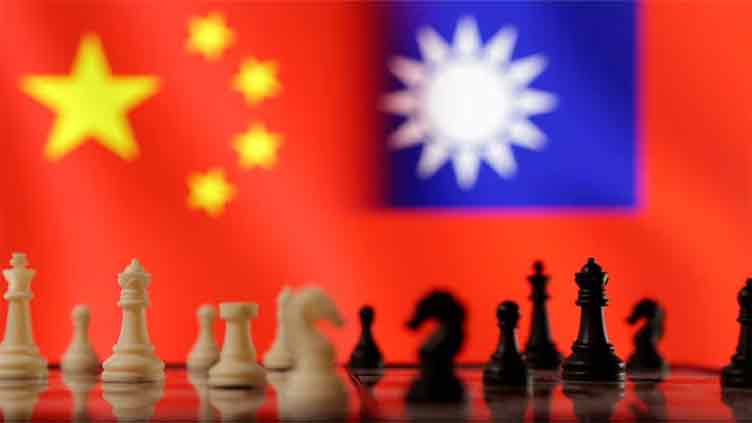China threatens more trade sanctions on Taiwan as election nears

Business
Taipei this month accused Beijing of economic coercion and polls interference
BEIJING (Reuters) – The Chinese government on Wednesday threatened to place further trade sanctions on Taiwan if the ruling party "stubbornly" adheres to supporting independence, in a further escalation of the war of words as Taiwanese elections approach next month.
Taiwan's Jan 13 presidential and parliamentary elections are taking place as China, which views the island as its own territory, has sought to force Taiwan to accept Chinese sovereignty claims.
Taiwan this month accused China of economic coercion and election interference after Beijing announced the end of tariff cuts on some chemical imports from the island, saying Taipei violated a trade agreement between the two sides signed in 2010.
Read more: With elections approaching, deepfake is already employed in Pakistan too
That came after China said it had determined Taiwan had put up trade barriers in contravention of both World Trade Organization (WTO) rules and the 2010 trade deal.
Speaking at a regular news briefing in Beijing, Chen Binhua, spokesperson for China's Taiwan Affairs Office, said the "root cause" of resolving problems related to the 2010 deal was Taiwan's ruling Democratic Progressive Party's (DPP) adherence to the island's formal independence.
"If the DPP authorities are determined to persevere, continue to stubbornly adhere to their Taiwan independence position, and refuse to repent, we support the relevant departments taking further measures in accordance with the regulations," Chen said.
China detests both the DPP and its presidential candidate, current Vice President Lai Ching-te, who is leading in the polls, believing they are separatists.
Lai says he has no plans to change the island's formal name, the Republic of China, but that only Taiwan's people can decide their future. He has also repeatedly offered talks with China but has been rebuffed.
The defeated republican government fled to Taiwan in 1949 after losing a civil war to Mao Zedong's communists who founded the People's Republic of China.
Chen said Taiwan was "facing a crossroads" about where to go, and that anything can be discussed on the basis of opposing Taiwan's independence. He reiterated that Taiwan independence means war.
However, Chen also extended his "heartfelt thanks" to Taiwanese companies which had donated money to help deal with the aftermath of an earthquake in a remote part of north-western China this month which killed 1949 people.
But he made no mention of condolences by Taiwan President Tsai Ing-wen to China after the disaster and offers of help from her government.
WILL PREVENT ANYONE ‘SPLITTING TAIWAN FROM CHINA’
President Xi Jinping vowed on Tuesday to resolutely prevent anyone from “splitting Taiwan from China in any way”, the official Xinhua news agency reported, a little more than two weeks before Taiwan elects a new leader.
At a symposium commemorating the 130th anniversary of the birth of former Chinese leader Mao Zedong, who in 1949 defeated the Republic of China government in a civil war which then fled to Taiwan, Xi said “the complete reunification of the motherland is an irresistible trend”.
“The motherland must be reunified, and inevitably will be reunified,” Xinhua cited Xi as telling senior officials from the Communist Party.
China must deepen integration between the two sides, promote the peaceful development of relations across the Taiwan Strait, and “resolutely prevent anyone from splitting Taiwan from China in any way”, he said.
The report made no mention of using force against Taiwan, though China has never renounced that possibility. It also did not mention the upcoming election.


